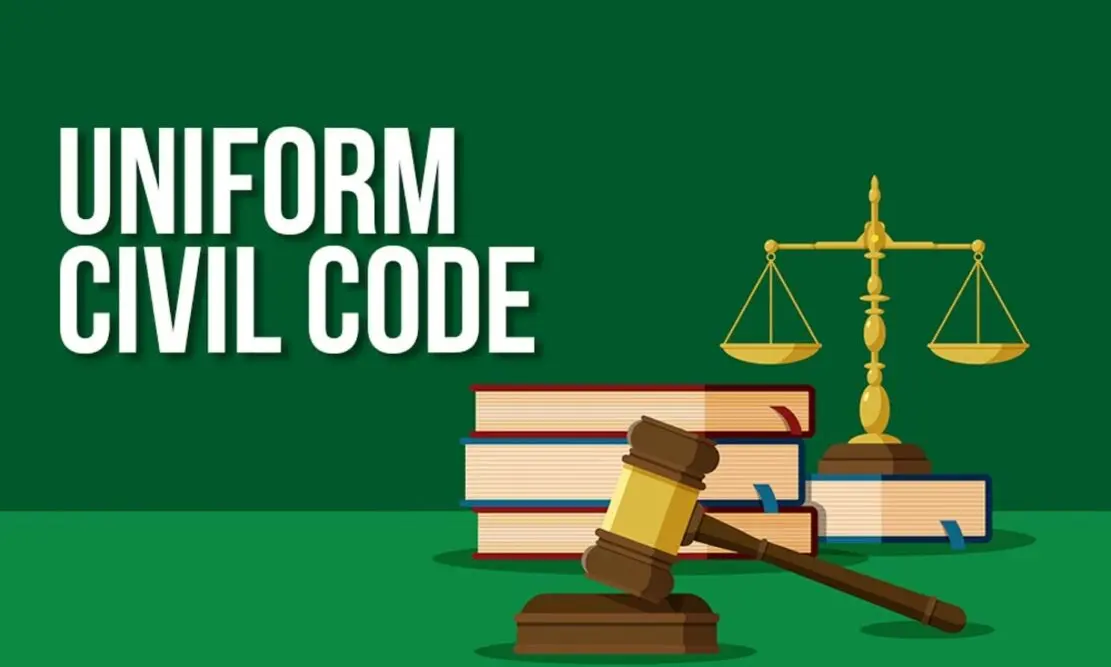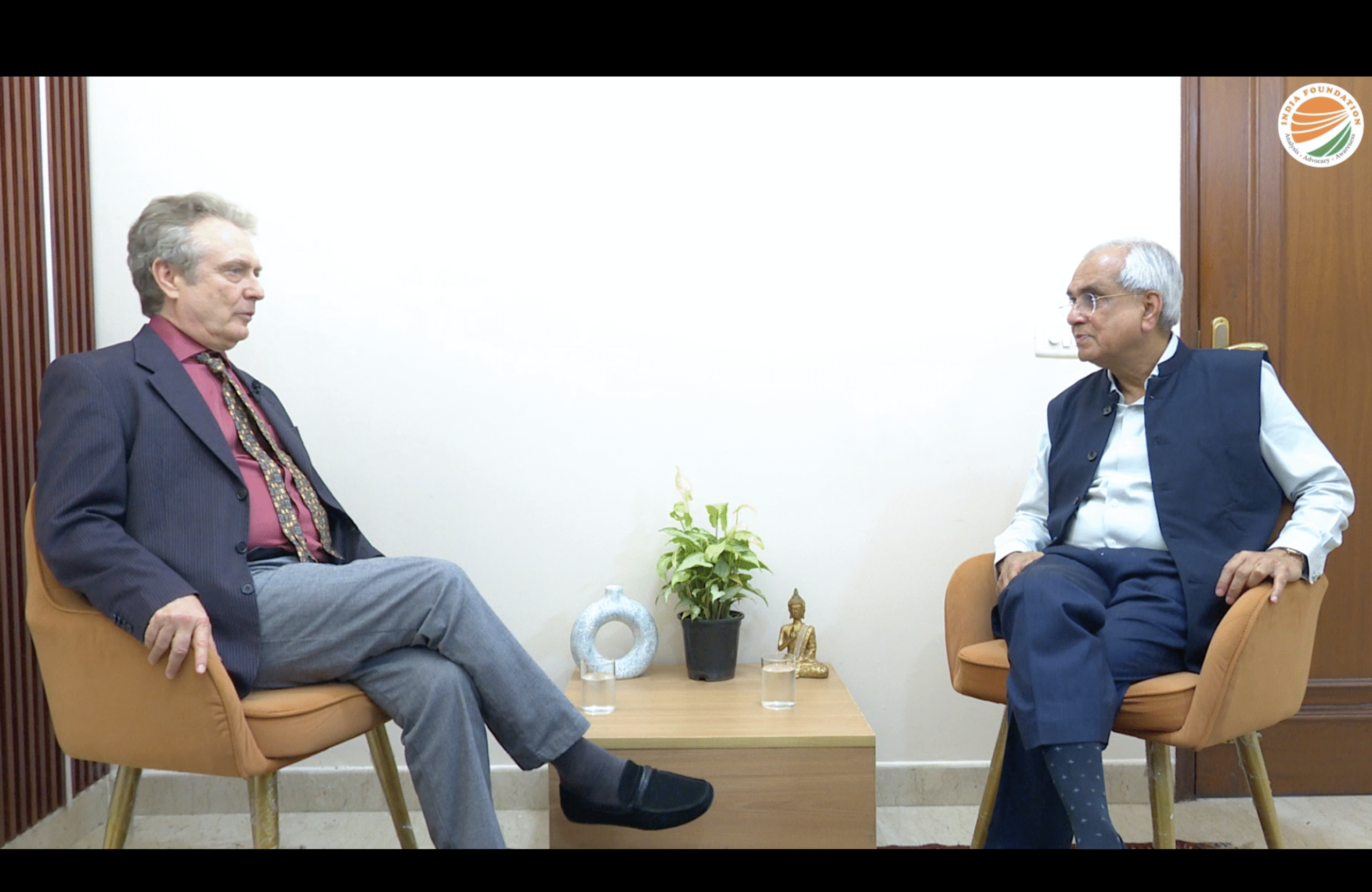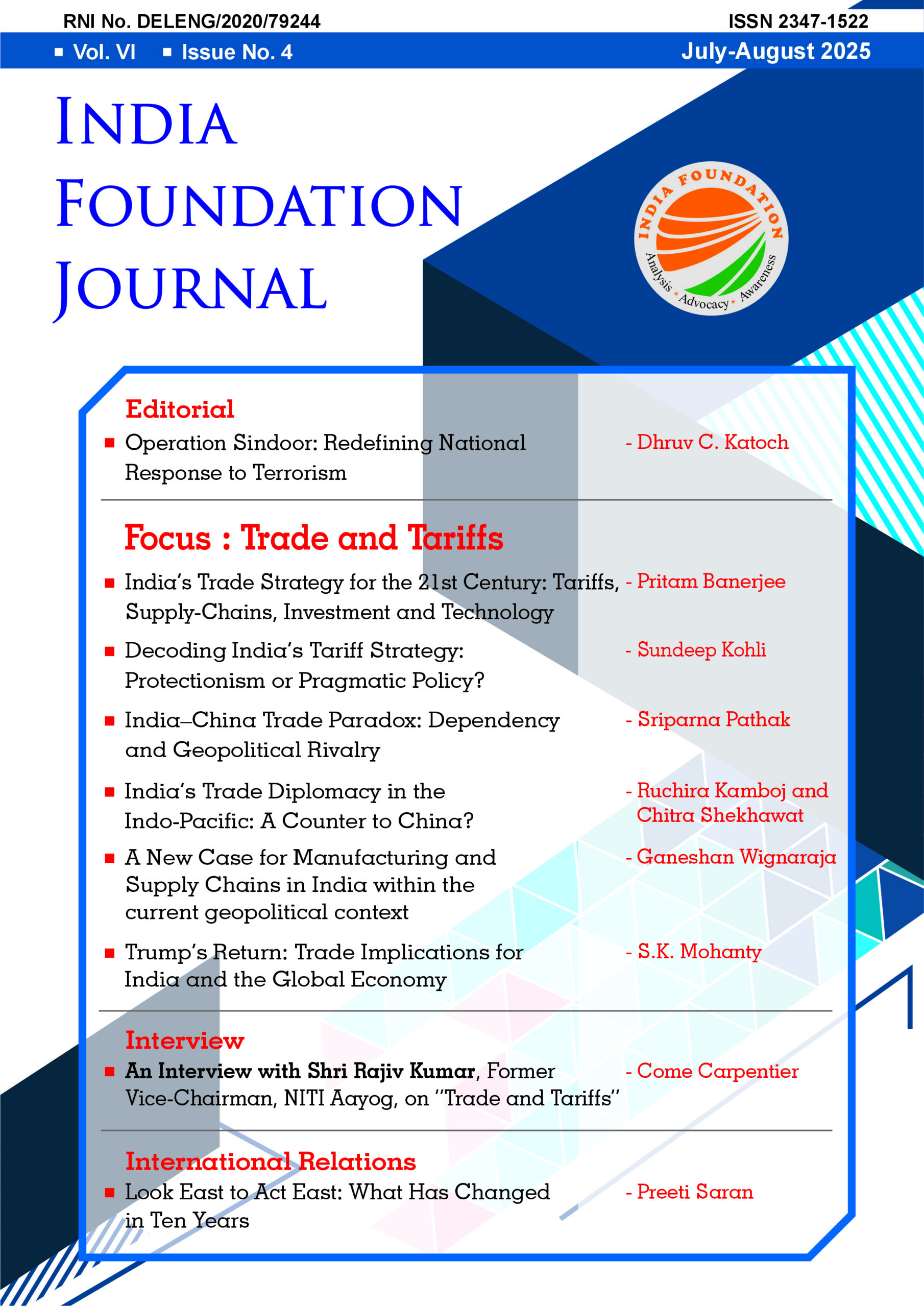A few months from now, Indians will be celebrating the 75 anniversary of the adoption of the Constitution by the Constituent Assembly on November 26, 1949. The day is observed as Constitution Day every year. It is marked by major public events in which the president, prime minister and other prominent public figures participate and recall the strenuous efforts made by members of that august assembly to draw up a document that would foster unity and integrity, deepen democratic traditions and ensure the social and economic advancement of the nation.
Notwithstanding 106 amendments and a serious challenge to its core principles in the 1970s, the Constitution has stood the test of time. However, some nagging issues persist, one of which is the Indian State’s inability to introduce a Uniform Civil Code (UCC)—something critical for society’s overall advancement along the core principles of equality and non-discrimination, which are central to the Constitution.
The inability to enforce such a code can be attributed to the national leadership’s lack of firmness at the time of independence in drawing up a legal framework wherein the core principles of liberty, equality, and fraternity, which constitute the bedrock of the Constitution, would prevail in all circumstances and override laws and customs inimical to the emergence of a secular, democratic, and liberal society.
A UCC primarily deals with issues such as marriage, divorce, inheritance, succession, etc. From time immemorial, the Muslim clergy has resisted conforming to a uniform civil law in these matters. They claim that all this is governed by the Sharia, and no true Muslim can accept any law that is against the Sharia, which is the religious law.
The failure of India’s political leadership is all the more glaring in the context of the politics of the 1940s in the sub-continent when the Muslim leadership stepped up the demand for a separate Islamic State for Muslims and secured it with the creation of Pakistan and the bloody partition of the country. However, the India that remained after partition opted for a secular, democratic constitution because that was the will of the Hindus and persons of Indic religions, who constituted 88 per cent of the population. India did not go the Pakistani way because the Hindus abhorred a theocratic state. The political leadership, which was influenced by this sentiment in the majority, ought to have insisted that those who stayed back, especially the Muslims, would have to conform to these liberal values. Those who felt that religious injunctions must prevail at all times could cross over to the newly created Islamic state.
Consequent to this hesitation, a UCC was not drafted. Instead, the Constituent Assembly paid lip service to the idea by incorporating it in Article 44 under Part IV of the Constitution titled ‘Directive Principles of State Policy’, which was a kind of advisory—thus conveniently passing the buck to future generations. The article directed the State to “endeavour” to secure a Uniform Civil Code for its citizens. Meanwhile, the issue has grown even more complex due to demographic change.
How the Constituent Assembly faltered
How the secular, democratic Indian State lost the initiative to enforce laws that gave paramountcy to the Constitution rather than to sectarian laws and customs originates in the proceedings of the Constituent Assembly, which drafted the country’s Constitution. This was most evident when Article 44 (then Article 35) on adopting a Uniform Civil Code was debated in the assembly on November 23, 1948.
The protests began with Mohamad Ismail Sahib, who opened the debate. In his speech, Ismail Sahib argued that the right to follow one’s own personal law is a fundamental right. He claimed that many European nations had made such concessions to Muslims. He moved an amendment that said the personal laws of any group should not be interfered with.[1]
Mahboob Ali Baig Sahib Bahadur also moved a similar amendment. He said: “As far as Mussalmans are concerned, their laws of succession, inheritance, marriage and divorce are completely dependent upon their religion.”[2]
- Pocker Sahib Bahadur supported these amendments and described the Article as “a tyrannous provision which ought not to be tolerated” because it interferes with religious practices and murders the people’s conscience. Mr. Hussain Imam expressed similar views.
MrNaziruddin Ahmad moved an amendment and said UCC violates constitutional guarantees. Thus, all Muslim members who spoke on Article 44 were opposed to the introduction of a uniform civil code.[3]
Mr. K.M. Munshi confronted them. He said that Article 25 permits the State to make laws concerning“secular activity” associated with religious practice and for “social welfare and reform”. Therefore, Article 44 allows the government to attempt a unification of personal laws. He challenged members who said a Uniform Civil Code would be “tyrannous”. Nowhere in Islamic nations is the personal law of each minority recognised as sacrosanct. He cited the example of Egypt and Turkey and said no minority in those countries is allowed to have such personal laws. Even in India, although the Khojas and Cutchi Memons were highly dissatisfied, the Shariat Act was imposed on them. They were forced to submit to it unwillingly. “Where were the rights of minorities then?” he asked, referring to minority sects in Islam who were compelled to accept the Shariat Act. He said ‘we want to divorce religion from personal law”. What has inheritance, succession, and such other matters got to do with religion? Mr Munshi was categorical and blunt. He said “We have reached a point when we must put our foot down and say that those matters (marriage, divorce, succession etc) are not religion, they are purely matters for secular legislation”. He cited the example of Hindus moving away from the injunctions imposed by Manu and Yagnavalkya. Muslims must abandon this “isolationist outlook on life.”[4]
Mr Alladi Krishnaswami Ayyar said the Hindu Code had moved away from ancient Hindu law because they had to move with the times. If Muslims are opposed to a common civil code, how is it that they do not insist on a separate Islamic criminal law for Muslims? He said, “The only community willing to adapt to changing times, it seems, is the majority community.”[5]
Dr. B.R. Ambedkar, the Chairman of the Constitution Drafting Committee, replied to the debate and rejected the contentions of the Muslim members. He said he was surprised by their arguments because the country already has a uniform code of law covering almost every aspect of human relationships. This includes a uniform criminal code, a uniform transfer of property act, the negotiable instruments act and practically a uniform civil law. The only province in which civil law has not invaded is marriage and succession. “It is this little corner which we have not been able to invade so far”, and this Article intends to bring about this change.
As regards the contention of Muslim members that Shariat law is immutable and uniform throughout India, he reminded the House that Shariat did not apply to Muslims in North-West Frontier Province until 1939. They followed the Hindu law regarding succession, etc. Also, Muslims in the United Provinces, Central Provinces and Bombay followed the Hindu succession law until the Shariat law was enacted in 1937, and the Muslims of Malabar followed the Hindu matriarchal law. Therefore, he said, all the amendments suggested by Muslim members had to be rejected.[6]
India today is paying the price for the pusillanimity of the national leadership in the initial years of independence.
But Nehru Imposes a Common Code for Hindus
The government headed by Jawaharlal Nehru succumbed to pressure from the Muslim minority while drafting the Constitution and placed the UCC idea under the Directive Principles of State Policy, which is of an advisory nature, instead of making it imperative. However, the leaders of the Congress Party were on an overdrive to modernise Hindu laws and pursued this project with utmost commitment. When it came to reforming Hindu Law, there was no such hesitation. The Nehru government passed a clutch of bills going under the umbrella of the Hindu Code Bill to reform and modernise Hindu laws. These included the Hindu Marriage Act,the Hindu Adoptions and Maintenance Act, the Hindu Succession Act, and the Hindu Minority and Guardianship Act. These laws were made applicable to all “Hindus” and this included Buddhists, Sikhs and Jains.
It must also be noted that there are other religious groups in the country which have their own personal laws, like the Christians, the Parsis and the Jews. Still, one has not seen this kind of vociferous resistance to a common civil law among these religious groups. They are more willing to align their family laws with the larger constitutional scheme.
A Significant Directive from the Supreme Court
The Supreme Court has repeatedly dwelt on this issue and emphasised the need for a UCC.
One of the most significant judgements of the Supreme Court on the need for UCC was delivered by Justices Kuldip Singh and R.M.Sahai in Smt. Sarla Mudgal, President, Kalyani &Ors Vs Union of India &Ors in May, 1995. They described Article 44 as “anunequivocal mandate… which seeks to introduce a uniform, personal law – a decisive step towards national consolidation”.
The judges noted that Prime Minister Jawahar Lal Nehru, while defending the introduction of the Hindu Code Bill instead of a Uniform CivilCode in the Parliament in 1954, had said, “I do not think that at the present moment the time is ripe in India for me to try to push it (UCC) through” and observed somewhat sarcastically that it appears that even 41 years thereafter, the Rulers of the day “are not in a mood to retrieve Article 44 from the cold storage where it is lying since 1949”. The Governments – which have come and gone – have failed to make any effort towards a unified personal law for all Indians.
The judges said the reasons were too obvious to be stated. The utmost that has been done is to codify the Hindu law in the form of the Hindu Marriage Act 1955, The Hindu Succession Act 1956, the Hindu Minority and Guardianship Act 1956 and the Hindu Adoptions and Maintenance Act 1956, which have replaced the traditional Hindu law based on different schools of thought and scriptural laws into one unified code. “When more than 80 per cent of the citizens have already been brought under the codified personal law, there is no justification whatsoever for keeping in abeyance, any more, the introduction of “Uniform CivilCode” for all citizens”.
Prime Minister Narendra Modi seemed to echo the sentiment of these two learned judges while addressing the nation on Independence Day recently when he asserted that the nation needed a “secular” civil code and not a communal code. This meant that the current civil code was limited to Hindus and citizens adhering to the Indic religions but not to others. He also referred to several directions of the Supreme Court in this regard.
The court said Article 44 is based on the concept that there is no necessary connection between religion and personal law in a civilised society. Article 25 guarantees religious freedom, whereas Article 44 seeks to divest religion from social relations and personal law. “Marriage, succession and like matters of a secular character cannot be brought within the guarantee enshrined under Articles 25, 26 and 27”. The personal laws of the Hindus, such as those relating to marriage, succession and the like, have all a sacramental origin, in the same manner as in the case of the Muslims or the Christians.
Equally significant was the apex court’s view that the Hindus, along with Sikhs, Buddhists and Jains, “have forsaken their sentiments in the cause of the national unity and integration,” but some other communities would not, though the Constitution enjoins the establishment of a “common civil code” for the whole of India.
They said that successive governments have been wholly remiss in their duty to implement the constitutional mandate under Article 44 of the Constitution of India. We, therefore, request the Government of India, through the prime minister, to have a fresh look at Article 44 of the Constitution of India and “endeavour to secure for the citizens a uniform civil code throughout the territory of India.” This was in 1995, when Mr. P.V. Narasimha Rao was the prime minister.[7]
In a separate judgement, Justice R.M. Sahai said that when the Constitution was framed with secularism as its ideal and goal, the consensus and conviction to be one, socially, found its expression in Article 44 of the Constitution.
Justice Sahai hits the nail on the head when he says,“Freedom of religion is the core of our culture. Even the slightest deviation shakes the social fibre. But religious practices, violative of human rights and dignity and sacerdotal suffocation of essentially civil and material freedoms are not autonomy but oppression. Therefore, a unified code is imperative both for the protection of the oppressed and promotion of national unity and solidarity”.
He then advised the government to rationalise the personal law of the minorities. He even suggested that the government bring in an anti-conversion law to check the abuse of religion by any person.[8]
The ApexCourt returned to this issue on a couple of occasions after that and reiterated the need for a UCC.
Uttarakhand Bites the Bullet
It is tragic that almost 40 years after this landmark judgement of the apex court, India’s political leadership has not gathered the nerve to implement Article 44.
However, amidst all this intransigence, it must be said that a small state – Goa – had, by tradition, adopted a UCC long before India’s independence. The Goa Civil Code, based on the Portuguese Civil Code, came into being in 1870 and still holds good. It applies to all religious denominations. Even after Goa merged with the Indian Union in 1961, the civil code continued, even though an attempt was made to knock it down in the 1980s. The Goa Civil Code does not permit polygamy and ensures joint property ownership by husband and wife.
Barring Goa, Uttarakhand is the first state to fulfil the constitutional mandate of having a UCC. Despite much resistance from the usual suspects, this state decided to bite the bullet early in 2024. It passed a Uniform Civil Code (UCC) in the state legislature, secured the consent of the state assembly, and sent it up for the assent of the President. This is the first state to adopt such a measure after independence. The law aims at uniformity in matters such as marriage, divorce, succession and inheritance and seeks to override customary law or religious injunctions. However, the law does not apply to Scheduled Tribes. The Uttarakhand law bars polygamy and child marriage. Also, dissolution of marriage is possible only under this law.
As usual, Muslim leaders objected to the Uttarakhand law and said they should be exempted. Sadly, the response of the leaders of this community to the UCC proposal now is no different from what was said 76 years ago on this issue by Muslim members in the Constituent Assembly.
Maulana Arshad Madani, head of the Jamiat-Ulema-e-Hind, said,“We do not accept any law against Sharia. Muslims can compromise on everything, but not with Sharia”.[9]
Mr Asaduddin Owaisi, chief of the Majlis-e-Ittehadul Muslimeen, also slammed the bill and declared it contrary to the fundamental rights guaranteed under the Constitution.[10]
Qazi Mohammad Ahmad Qasmi of Dehradun City held out a threat. He said, “The government will be responsible for the damage caused to the State”.[11]
The Law Commission Wakes up at Last!
The Supreme Court had advised the government in 1995 to consult the Law Commission to draft a UCC. There was some movement on this front when the Law Commission of India put out a consultation paper on ‘Reform of Family Law’. Again, last year, when the Narendra Modi government asked the commission to examine the issue, the latter issued a public notice calling for suggestions and opinions from all stakeholders.[12]
It is learnt that the commission has been flooded with responses and, at last count, had received 7.5 million suggestions.[13]
Where do we go from Here?
Unfortunately, because of the dominance of the Congress Party in national politics in the initial decades after independence and the party’s pseudo-secular policies and commitment to minority appeasement, some fundamental truths about the politics of the sub-continent leading to partition were brushed aside. This effort of the Congress Party was aided and abetted by left-leaning and Nehruvian academics and media persons. As a result, sustained efforts were made to bury the truth about how the Muslims stepped up their demand for a separate Islamic nation in the 1940s and secured one with the creation of Pakistan in 1947. Secondly, although the Muslims opted for a theocratic state, the fact that the Hindus and citizens belonging to the Indic religions, who constituted 88 per cent of the population in India after partition, chose to establish a secular, democratic nation with liberal values was never acknowledged by the Congress Party, the communists and their fellow travellers and the leaders of the religious minorities. They did not have the grace to say that India’s Constitution, which provided a basket of fundamental rights to religious, linguistic and ethnic minorities, flowed from this incredible sense of humanity and respect for pluralism among the Hindus. Nor did they ever understand or acknowledge that the Indian Constitution provided all this to the minorities because Bharat was civilisationally secular and democratic.
What has this respect for pluralism among the majority done in terms of demography? As many as 35 million Muslims preferred to stay back in India at the time of independence. Today, the Muslim population in India is estimated to be 210 million. Similarly, the Christian population in the country has risen over the last 77 years from 8 million to 35 million. The consequence of all this is the emergence of a kind of separateness, especially among Muslims.
Yet, the leaders of the Muslims who stayed back in India began once again pursuing what Mr K.M. Munshi described in the Constituent Assembly as an “isolationist” policy yet again, objecting to a UCC and such other measures which promote the core principles in the Constitution like equality before law and non-discrimination.
Dr. Ambedkar brilliantly analysed the problem eight decades ago when he said,“The dominating consideration with the Muslims is not democracy. The dominating consideration is how will democracy affect the Muslims in their struggle against the Hindus”.[14]
Dr. Ambedkar elaborates on his fears in this regard. He died in 1956 and, therefore, did not have the benefit of listening to or reading about the fiery speeches of the Shahi Imam and other Muslim leaders who encouraged separateness. Yet, he had said:
“The allegiance of a Muslim does not rest on his domicile in the country which is his, but on the faith to which he belongs. To the Muslim,’Ibi Bene Ibi Patria’ is unthinkable. Wherever the rule of Islam is, there is his own country. In other words, Islam can never allow a true Muslim to adopt India as his motherland and regard a Hindu as his kith and kin”.[15]
In these circumstances, how does democratic India achieve the social and political goals outlined in the Constitution?
Sadly, politicians of certain Muslim parties like the All India Majlis-e-Ittehadul Muslimeen (AIMIM) are once again kindling separateness among Muslim citizens, leading to fresh tensions.
As a result, the problem has now been aggravated. Although Muslims have lived in a liberal, secular, democratic society for 76 years, the urge to demand special privileges persists. Some members of this community believe that they can have a veto on every matter. We hear the same absurd, myopic arguments from Muslim leaders now vis-à-vis a uniform civil law.
If India is to remain a liberal, democratic society, the Muslim arguments against a UCC must be challenged and brushed aside. There need be no confusion about it.
In other words, we need to disprove Ambedkar if we are to save the Constitution that he has given us. As this writer said in another context, we must ensure that religion dissolves into the great crucible called the Constitution of India. It must yield to the Constitution rather than the other way around. Should there ever be a conflict between a religious text and the Constitution, the latter must prevail. In other words, the Constitution is supreme. We cannot allow any other text to have a perch above it. This is the prescription for establishing a secular society. This is Prime Minister Narendra Modi’s message on Independence Day. The enforcement of a Uniform Civil Code is a must to establish the supremacy of the Constitution of India.
Author Brief Bio: Shri A. Surya Prakash is a Trustee of India Foundation & Vice-Chairman, Executive Council, Prime Ministers Museum & Library, New Delhi.
References:
[1]Constituent Assembly Debates (CAD), Volume VII, Lok Sabha Secretariat, New Delhi,1989, p.541
[2] Ibid .543
[3] Ibid 542
[4]Ibid 548
[5] Ibid 549
[6]Ibid 551
[7]https://main.sci.gov.in/jonew/judis/10742.pdf
[8]Ibid 14
[9]https://www.indiatoday.in/india/story/uttarakhand-uniform-civil-code-maulana-asad-madani-jamiat-ulama-i-hind-dont-law-against-sharia-2498522-2024-02-07
[10]https://www.indiatoday.in/india/story/asaduddin-owaisi-questions-government-on-uttarakhand-ucc-uniform-civil-code-muslim-rights-2509580-2024-03-02
[11]https://sanatanprabhat.org/english/93445.html
[12]https://cdnbbsr.s3waas.gov.in/s3ca0daec69b5adc880fb464895726dbdf/uploads/2023/06/2023061446.pdf
[13]https://www.indiatoday.in/law/story/uniform-civil-code-law-commission-received-over-75-lakh-public-feedback-2413073-2023-07-28
[14](Thoughts on Pakistan, Thacker and Company Ltd, Rampart Row, Bombay, 1941, p.223)
[15]Ibid 233




